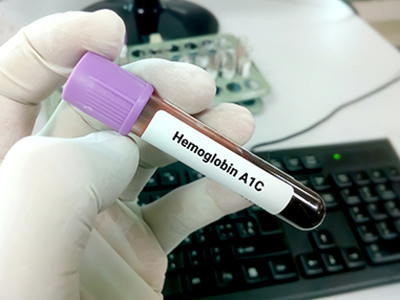
While high-risk study participants experienced the greatest improvements in blood sugar control, patient-specific support could further enhance outcomes.
Peer support has promising results for people living with type 2 diabetes, according to the findings of a recent Vancouver Coastal Health Research Institute (VCHRI)-led study, published in Diabetic Medicine.
“There can be a heavy psychological burden from type 2 diabetes; yet, not everyone has access to specialized care of a psychologist or counsellor covered through an extended health care plan or by personal means,” notes study principal investigator and VCHRI researcher, Dr. Tricia Tang.
“Research into low-cost, long-term support for people with diabetes recognizes that this type of care is essential and could be provided at low to no cost outside the health care system.”
Type 2 diabetes occurs when the pancreas does not make enough insulin or when cells in the body do not respond well to insulin, resulting in insulin resistance. While insulin resistance prompts the pancreas to produce more insulin, eventually the body cannot keep up and blood sugar levels rise. This can damage cells and lead to serious health conditions, such as vision loss and kidney and heart disease.

“Ideally, people living with type 2 diabetes see their endocrinologist or family physician three times per year, yet they make self-management decisions every day multiple times per day,” notes Tang. “Given these daily demands, people need ongoing support over time.”
Highest-risk participants saw greater blood sugar control
Tang and her research team conducted a 12-month intervention of 160 adults with type 2 diabetes who were receiving specialist care. Seventy-four participants randomly placed in the study group participated in a peer support program called Peer-Led, Empowerment-based, Approach, to Self-management Efforts in Diabetes (PLEASED). Another 86 participants in the control group received their usual diabetes care.

Peer leaders trained in how to offer supportive and constructive non-clinical conversations were paired with PLEASED participants with type 2 diabetes from specialty care settings, such as endocrinology clinics or diabetes education centres.
Peer leaders met with participants face-to-face once before engaging in weekly phone calls for the first three months, and then making twice-monthly phone calls until the end of the year-long study.
Peer leaders often guided participants through a five-step goal-setting model that involved:
- Discussing difficulties faced while managing diabetes;
- Sharing feelings regarding these self-management difficulties;
- Problem-solving any challenges;
- Asking self-management questions; and
- Developing an action plan to achieve a self-identified goal prior to the next peer conversation.
“Peer conversations could deviate from the five-step goal-setting process, as some participants were more interested in having more personal conversations,” notes Tang. “However, others preferred to use this structure to guide the conversation and help them set and achieve health and wellness goals, such as losing weight or sticking to an exercise routine.”
The study team found that high-risk participants in the PLEASED group experienced the greatest improvements by the end of the study, with a mean HbA1c reduction of 1.34 per cent compared to a reduction of 0.4 per cent in the usual care control group.
An opportunity to personalize peer support
Around 90 per cent of adult diabetes cases in Canada are type 2, with around 11.7 million Canadians living with type 2 diabetes or pre-diabetes.
Based on the findings of the PLEASED investigation, along with Tang’s qualitative study, Tang believes that a more personalized care approach could further enhance diabetes management among persons living with type 2 diabetes. This alternate approach to peer support could include the use of different communications platforms, such as through telephone, text, a website, a mobile app or face-to-face interaction, and modalities of interaction, such as one-on-one or group-based.
"Now that we have advanced technology, including access to smart phones and wireless internet connections, we can offer people more support options around their self-management or emotional needs.”
In her current peer support study, REACHOUT — a mobile app that delivers peer-led mental health support to adults with type 1 diabetes — participants are invited to choose their own peer supporter, notes Tang.
In the future, peer support programs could give participants greater autonomy when it comes to how much support they need, how that support is delivered, and who will be providing that support.
"The more we personalize our models of support, the better our outcomes will be," says Tang.


